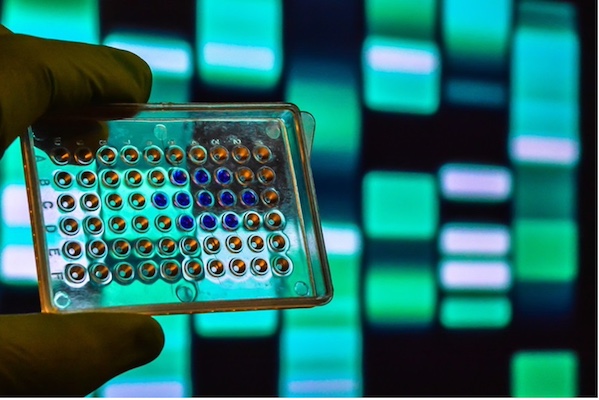Cancer Test Could Allow More Patients to Benefit from Immunotherapy
January 3, 2024
Source: drugdu
 428
428

Millions of people across the world are diagnosed with colorectal cancer and endometrial cancer each year. A significant number of patients with these cancers exhibit mismatch repair deficiency, a genetic anomaly characterized by errors in DNA due to the absence of specific repair proteins. This deficiency hampers DNA repair capabilities, potentially leading to various cancer types. Prior studies have indicated that patients with this condition often show positive responses to immunotherapy, which leverages the body's immune system to combat cancer. Now, a new study has broadened the scope of patients who might benefit from this treatment approach.
A research team from Brigham and Women’s Hospital (Boston, MA, USA) conducted an analysis involving 1,655 patients with either colorectal or endometrial cancer. These patients underwent both immunohistochemistry, the prevailing standard test for this genetic state, and next-generation sequencing tests. Immunohistochemistry detects mutations impacting the antigen, while next-generation sequencing provides a more comprehensive mutation analysis. The study discovered that about 6% of endometrial cancer and 1% of colorectal cancer patients exhibiting mismatch repair deficiency were not identified through immunohistochemistry but were detected via next-generation sequencing. This implies that additional patients who could benefit from immunotherapy might be identified through this more sensitive testing method.
Patients identified with mismatch repair deficiency through sequencing responded more favorably to immunotherapy compared to other treatments, with survival and treatment outcomes similar to those diagnosed by both testing methods. Furthermore, the research indicated that patients with the same type and stage of cancer who did not undergo immunotherapy had poorer outcomes than those who received this treatment. The researchers now aim to explore whether these findings are consistent across other sequencing panels and cancer types. Additionally, they intend to examine the role of other genetic deficiencies in the context of mismatch repair deficiency.
“In colorectal cancer and endometrial cancer, which are the two types of cancer where mismatch repair deficiency is most commonly seen, immunotherapy is not the standard treatment unless a patient has this condition,” said first author Elias Bou Farhat, MD, a postdoctoral research fellow in the division of Pulmonary and Clinical Care Medicine at Brigham and Women’s Hospital. “But in patients with this condition, even in late-stage cancer, those who receive immunotherapy can live for years and in some cases be potentially cured. Including next-generation sequencing as a complimentary testing practice could benefit patients in all phases of cancer, from pre-treatment to advanced stages.”
Source:
https://www.labmedica.com/molecular-diagnostics/articles/294799762/cancer-test-could-allow-more-patients-to-benefit-from-immunotherapy.html
Read more on
- The first subject has been dosed in the Phase I clinical trial of Yuandong Bio’s EP-0210 monoclonal antibody injection. February 10, 2026
- Clinical trial of recombinant herpes zoster ZFA01 adjuvant vaccine (CHO cells) approved February 10, 2026
- Heyu Pharmaceuticals’ FGFR4 inhibitor ipagoglottinib has received Fast Track designation from the FDA for the treatment of advanced HCC patients with FGF19 overexpression who have been treated with ICIs and mTKIs. February 10, 2026
- Sanofi’s “Rilzabrutinib” has been recognized as a Breakthrough Therapy in the United States and an Orphan Drug in Japan, and has applied for marketing approval in China. February 10, 2026
- Domestically developed blockbuster ADC approved for new indication February 10, 2026
your submission has already been received.
OK
Subscribe
Please enter a valid Email address!
Submit
The most relevant industry news & insight will be sent to you every two weeks.



